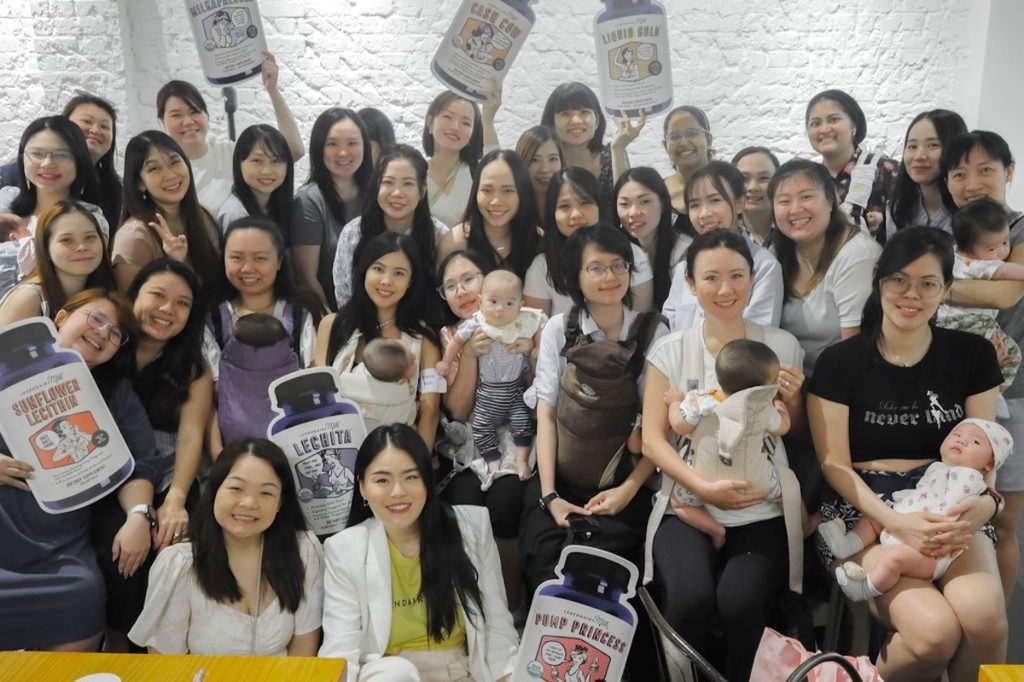Be healthy, be happy.
To take charge and own her health is the best way a woman can care for herself and her loved ones.
Making happiness a way of life starts with practising simple self-care habits. Here are 12 pieces of expert advice for a woman to enjoy lasting health and wellness.
Find A Way To Beat Stress
You probably have a lot on your plate, and this can put you under an immense amount of stress. Unfortunately, stress has been linked to an increased risk of infertility, heart disease, diabetes, anxiety, depression, accelerated ageing and premature death.
Stress may also possibly explain why you’ve been having frequent episodes of headaches. Managing stress is vital for your health and helps you to and more productive in the long run – so find some ways to help you relax and unwind, and stick to them.

Say No To Dieting
There is no guarantee that the diet plans you follow will help you lose weight. In fact, studies show that 95% of people will fail at diets. It is not a problem of self-control but biological changes happening in your body that prevents you from losing weight, according to researcher Traci Mann, who has studied dieting for more than 20 years.
While you might be able to lose weight in the short-term, it is likely that you will regain the weight you lose and even more over time. What you can do instead is to make changes to your current eating habits. Making smarter choices (eg. substituting more fresh foods for processed foods) will make a difference in the long run.

Bid Smoking Goodbye
You definitely don’t need to be told that smoking is bad for you, but do you know that quitting can help to reverse the damage to your health from smoking? Apart from increasing your risk of lung cancer and heart disease, smoking greatly affects your babies. The effect of smoking on breast cancer has also been found to be greater than previously thought. Breast cancer is 30% more prevalent in smokers as compared to non-smokers.
For non-smokers, take note of second-hand and even third-hand smoke. Studies have found them to pose significant health risks, especially to children. Pregnant women who live or work with smokers are at greater risk of stillbirth than those who do not.

Start Family Planning Early
A woman’s fertility steadily declines with age, and getting pregnant at an older age also increases the risk of pregnancy complications. If you want to have kids, start planning as early as possible.
If you suspect infertility, talk to a fertility specialist about your options. Infertility can be treated depending on the cause – this may include options such as in vitro fertilisation (IVF) or freezing your eggs.

Go Under The Sun, But Remember To Use Sunscreen
If you are in the majority, you might probably be vitamin D deficient. According to Dr Michael Lim, cardiologist at Mount Elizabeth Hospital, vitamin D has been shown to help with calcium absorption in the body, improve bone health, and lower the risk of diabetes and heart attack. The good news is that vitamin D deficiency can easily be reversed for those of us living in sunny Singapore.
Simply stay under the sun for 15 – 20 minutes daily. Outside of the 15 – 20 minute window period, apply sunblock liberally. Take care that you are not over-exposed to the sun, which could put you at an increased risk of melanoma or skin cancer.

Take Pills If Necessary, But Watch Your Calcium Intake
If you find yourself deficient in some nutrients that are key to healthy living, popping a supplement would be a quick and convenient way to combat the problem. However, if you can spare the time and effort, it might be better to consume food rich in these nutrients instead. Also, be careful to not consume too many calcium pills.
Calcium supplements have been linked to an increased risk of stroke and heart attack. It can also put you at greater risk of kidney stones, says Dr Michael Lim, cardiologist at Mount Elizabeth Hospital. Instead, try to ensure that your vitamin D levels, which regulates calcium absorption in the body, are adequate.
Rest Well
It’s not just about the number of hours you put in, it’s also about the quality of those hours of sleep. Women have been found to have more difficulty falling and staying asleep as compared to men. Research has also shown that women who have sleepless nights are at a greater risk of health problems than men.
Specifically, women who report unhealthy sleep are at an increased risk for heart disease, type 2 diabetes and depression. Make enough time (7 – 9 hours) for sleep, but if you find yourself struggling to fall or stay asleep, seek medical help.

Do More Than Cardio
While cardio is great, your body could benefit from weight-bearing exercises as well. Weight-bearing exercises increase your bone mass, improving your bone health. In the long-term, it reduces your risk of osteoporosis, heart disease, cancer and diabetes. And don’t worry, weight lifting exercises do not just mean lifting weights.
Dancing, hiking, aerobics, tennis and other racquet sports are considered high-impact weight-bearing exercises. If you’re looking for more low-impact exercises, try elliptical training machines, stair-step machines or walking.
Go For Regular Check-Ups With The Doctor
Go for regular check-ups with your gynaecologist to give yourself a peace of mind, or to increase your chances of getting treated successfully (should you need to seek treatment).
Early detection is always key to a complete recovery. Pap smears and pelvic exams should be done once every 2 years after the age of 21 (or earlier, if you are sexually active), and breast exams annually after the age of 40.

Stay Social And Have A Healthy Support Group
As the saying goes, no man is an island. It is more so for women. Do you know that studies have confirmed the importance of social relationships on health and longevity in women? Staying socially active helps to protect your cognitive functions. On the other hand, a lack of social ties is associated with depression and later-life cognitive decline, as well as with increased mortality.
One study found that a lack of strong relationships increased the risk of premature death from all causes by 50% – a risk roughly comparable to smoking up to 15 cigarettes a day and greater than obesity and physical inactivity. Now you have every reason to plan nights out with your friends and family!
Keep Your Brain Engaged
Dr Lee Kim En, neurologist at Mount Elizabeth Hospital, says that the number of people diagnosed with dementia is alarming. In Singapore, the projected number of those aged 65 years and above with dementia in 2020 will hit 53,000, and this will further increase to 187,000 by 2050. It is crucial that we learn how to keep our brains healthy.
Fortunately, straightforward lifestyle changes make a great difference. Exercising and quitting smoking can help to build up cognitive reserve, a buffer that delays neurological changes, or makes our body better equipped to handle said changes.
As our brain functions just like our muscles do, work at it to keep it going. Develop hobbies that both you and your brain are stimulated by. The good news is, there’s a great variety for you to pick from – learn a language, play an instrument, go dancing, try new food! The list is endless. Pick the ones that keep you (and your brain) engaged.

Don’t Neglect Your Mental Health
Women are nearly twice more likely to suffer from depression than men. There is no shame in admitting that things have taken a toll on you, and that you need professional help.
Do not stop yourself from getting the help you need because of the potential stigma you may face. Taking action would be doing yourself the greatest favour.













